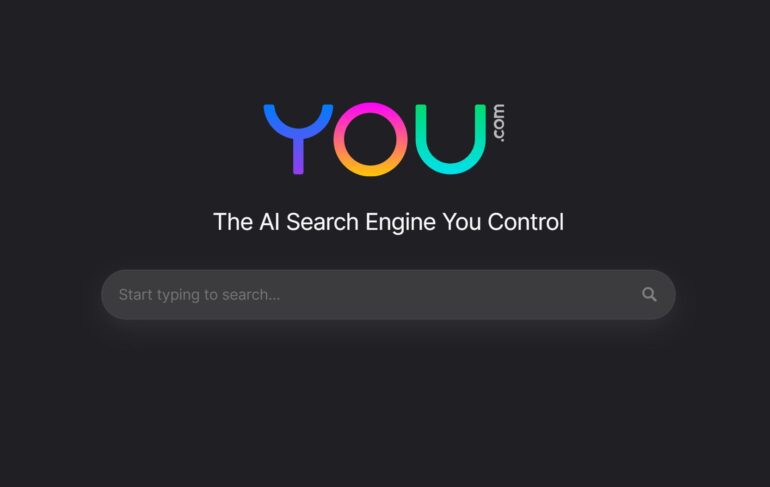TL;DR:
- You.com introduces a set of APIs for Large Language Models (LLMs) with real-time web access.
- These APIs enhance LLM responses with up-to-date internet context, addressing the limitations of static data training.
- LLMs like Meta’s Llama 2 can now provide more accurate and timely answers to user queries.
- Customers such as LlamaIndex, Anthropic, and Cohere have already integrated You.com’s APIs.
- The APIs come in three flavors: Web search, news, and RAG (Retrieval-Augmented Generation).
- Challenges include unfiltered web data and limitations in handling localized queries.
- You.com plans to merge news and general web search for a seamless user experience.
- The starting price for these APIs is $100 per month, with customizable packages for larger enterprises.
Main AI News:
In a game-changing move, You.com is set to redefine the capabilities of Large Language Models (LLMs) with the introduction of a cutting-edge set of APIs. Just as OpenAI’s connection to the internet transformed ChatGPT, You.com aims to empower every LLM with real-time access to the open web or more targeted web slices. Priced at a competitive starting point of $100 per month, these APIs promise to enhance LLM responses by infusing them with up-to-the-minute internet context.
Already, prominent customers like LlamaIndex, Anthropic, and Cohere have seamlessly integrated these APIs into their models, heralding a new era of dynamic and accurate LLM interactions. According to You.com CEO and founder Richard Socher, these APIs fulfill a long-standing demand for this level of functionality. He explains, “When you ask about a recent event, like a Super Bowl score on the day of the Super Bowl, our API will search for those scores on the web and then you can add that information, at that moment, to the LLM, allowing it to answer your question with precision.”
Traditionally, LLMs rely on static data sources like web pages and e-books for training. This approach, while effective for many tasks, confines their knowledge to a specific timeframe. LLMs trained before September 2021, for instance, would lack awareness of events occurring after that date. You.com’s revolutionary APIs break free from this limitation by constructing an index of lengthy website excerpts, a marked departure from the bite-sized snippets offered by Bing and Google’s search APIs, which merely tempt users to click links. By leveraging this custom-built index, LLMs can decipher relevant snippets and provide updated responses.
Socher elaborates on the capabilities, stating, “Every LLM receives a prompt—a behavioral guideline for answering questions. With this API, you can infuse the prompt with real-time web context after the question is asked.”
The You.com API suite offers three distinct “flavors”: Web search, news, and RAG (Retrieval-Augmented Generation). Web search grants LLMs access to the extensive index of lengthy snippets, while the news flavor exclusively delivers news results. The RAG variant combines You.com’s web search results with LLMs to generate responses that Socher claims are “more factual,” though thorough evaluation is ongoing.
However, the quest for an LLM with web access carries inherent risks. The live web, being less curated than static training data, presents unfiltered information, making search results susceptible to manipulation. Furthermore, the prioritization of websites with modern web technologies can lead to quality content being overshadowed.
Socher acknowledges certain weaknesses, especially in addressing localized “near me” queries, as the API lacks user location information. Nevertheless, You.com is actively working on enhancements, including the ability to produce more intricate responses with verifiable citations.
“We’re planning to merge news and general web search to offer a seamless experience for companies using our APIs,” adds Socher. “By integrating our API into their solutions, creators can ensure more relevant and helpful answers for their users, turning to the web for fact verification.“
The introduction of You.com’s APIs raises a compelling question: Is search the next battleground in the generative AI domain? As open-source LLMs increasingly rival their closed-source counterparts, the strength of the search engine behind these closed-source LLMs, such as Bing for ChatGPT and Google for Bard, gains prominence. Yet, APIs like You.com’s could potentially level the playing field, though perfection remains elusive.
While no API is flawless, the competition it fosters is undeniably beneficial. The new You.com APIs are available at a starting price of $100 per month, offering 14,200 API calls after a 60-day trial that includes 1,000 free monthly calls. For larger enterprise agreements with annual subscriptions and discounts, You.com offers tailored packages, ensuring accessibility for businesses of all scales.
Conclusion:
You.com’s introduction of groundbreaking APIs for LLMs signifies a significant shift in the market, enabling these models to access real-time web data. This move enhances the accuracy and relevance of LLM responses, opening up new possibilities for businesses and creators to provide dynamic and up-to-date content. As the market evolves, competition in the generative AI domain intensifies, with the strength of search engines behind LLMs becoming a focal point. You.com’s APIs are poised to level the playing field and promote healthy competition, offering accessible pricing and tailored solutions for businesses of all sizes.

